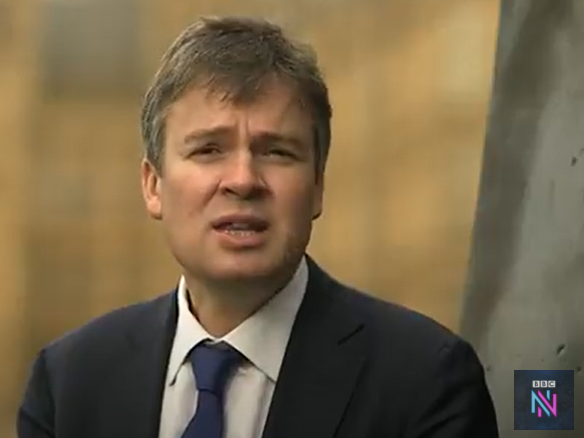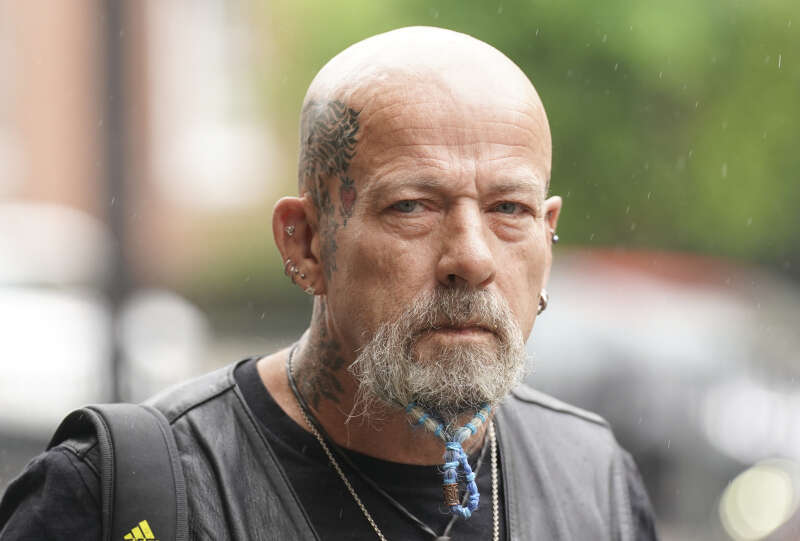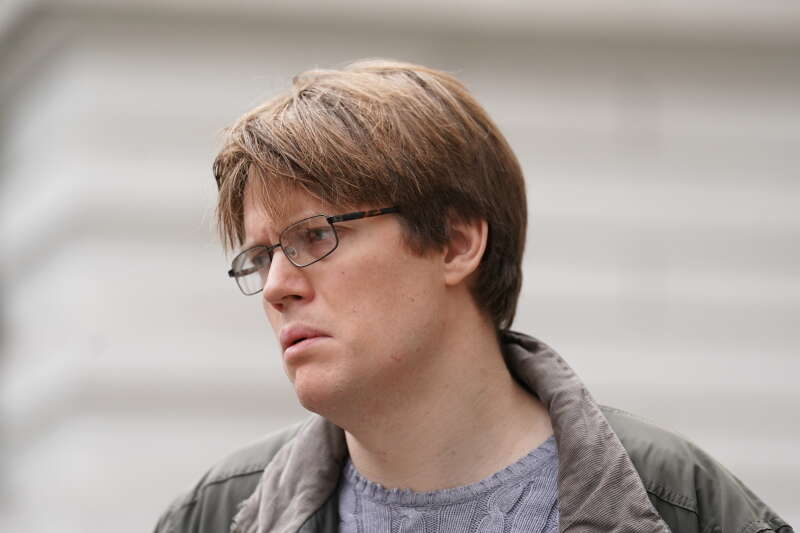
Five men and a woman who verbally abused BBC journalist Nicholas Watt at a protest have now been convicted of a public order offence, according to police.
A court previously heard how members of the group intimidated Newsnight’s political editor Nicholas Watt during the politically charged incident in Whitehall on 14 June last year.
Djazia Chaib-Eddour, 44, Christopher Aitken, 62, Martin Hockridge, 58, Alexander Peat, 34, and Gary Purnell, 45, all denied using threatening, abusive or insulting words or behaviour with intent to use harassment, alarm or distress.
They stood trial at Westminster Magistrates’ Court from 29 June to 1 July, while Joseph Olswang, 40, pleaded guilty at an earlier hearing.
A verdict of guilty in all cases was recorded on Monday and the group will be sentenced on 30 August, according to the Metropolitan Police.
Olswang, who the court heard has bipolar disorder and was in the midst of a manic episode at the time of the protest when he was seen “shouting and screaming” at Watt, was previously given a 20-week prison sentence suspended for 18 months.
Jonathan Munro, director of BBC News, said: “Nick Watt is a brilliant journalist who was just doing his job that day when he was targeted on the streets of Westminster. All journalists should be able to carry out their work without intimidation or impediment and we will continue to stand up for our right to do so.”
National Union of Journalists general secretary Michelle Stanistreet echoed this, saying: “The harassment of Nick was completely unacceptable and convictions against those responsible should send a clear message – that journalists must not be targets because of the work they do and that attacks will not go unpunished.”
Detective Constable James Harold, the officer in the case, said: “A video of this incident prompted a huge amount of online comment and public concern. The behaviour shown by these people was unacceptable.
“Members of the public, of any profession, have the right to go about their day without being subjected to verbal harassment or actions that put them in fear for their safety.”
At the trial, Watt told Westminster Magistrates’ Court he felt like “prey” and that he was “very scared” as he was pursued by demonstrators last year. He had gone to observe the protest, which started “reasonably good natured” but “deteriorated”, he said.
Footage played in court showed Watt, who was wearing a BBC lanyard, walking away from the crowd after people started shouting in his face. He then started running, making his way behind the gates of Downing Street.
Some of the shouts heard in the video included “traitor” and “how can you sleep at night?”
Prosecutor Alex Matthews said the five defendants in the trial had “engaged in mob rule” and that the crowd in general had “whipped up in joint fervour”. Watt said that despite reporting from unrest in Northern Ireland he had never had an experience like it before.
Aitken told the court he was “sorry” for “any distress that Nick Watt’s family feel” over the incident but added that the journalist was partly responsible and may have attended the protest to agitate demonstrators.
Co-defendant Hockridge accepted shouting “traitor” at Watt several times but denied trying to make him feel threatened, saying “that’s not what I’m about”.
Peat also accepted saying “traitor” but told police in his interview “I didn’t call him any four-letter words”. Chaib-Eddour walked with Watt for several metres and told him “you need to start reporting on honest journalism”.
Purnell gave a no comment interview to police and chose not to give evidence in court.
Picture: BBC Newsnight/Youtube screenshot
Email pged@pressgazette.co.uk to point out mistakes, provide story tips or send in a letter for publication on our "Letters Page" blog




